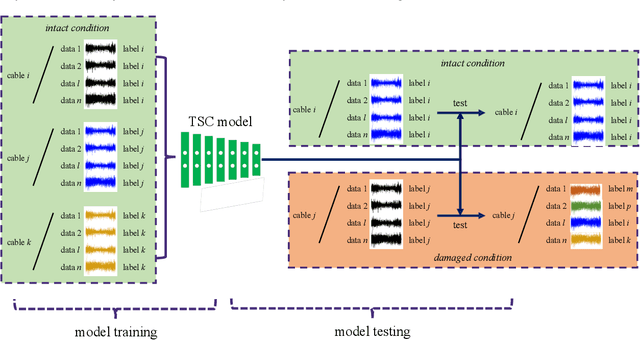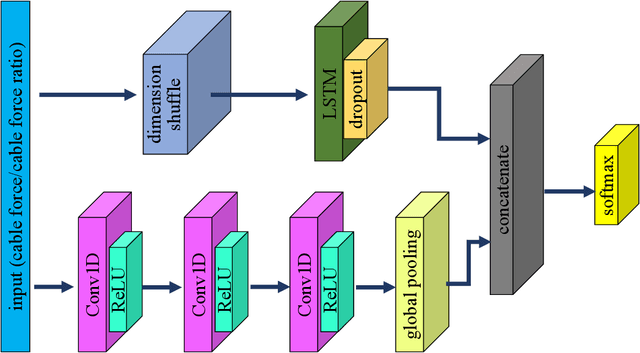Condition Assessment of Stay Cables through Enhanced Time Series Classification Using a Deep Learning Approach
Paper and Code
Jan 11, 2021



This study proposes a data-driven method that detects cable damage from measured cable forces by recognizing biased patterns from the intact conditions. The proposed method solves the pattern recognition problem for cable damage detection through time series classification (TSC) in deep learning, considering that the cable's behavior can be implicitly represented by the measured cable force series. A deep learning model, long short term memory fully convolutional network (LSTM-FCN), is leveraged by assigning appropriate inputs and representative class labels for the TSC problem, First, a TSC classifier is trained and validated using the data collected under intact conditions of stay cables, setting the segmented data series as input and the cable (or cable pair) ID as class labels. Subsequently, the classifier is tested using the data collected under possible damaged conditions. Finally, the cable or cable pair corresponding to the least classification accuracy is recommended as the most probable damaged cable or cable pair. The proposed method was tested on an in-service cable-stayed bridge with damaged stay cables. Two scenarios in the proposed TSC scheme were investigated: 1) raw time series of cable forces were fed into the classifiers; and 2) cable force ratios were inputted in the classifiers considering the possible variation of force distribution between cable pairs due to cable damage. Combining the results of TSC testing in these two scenarios, the cable with rupture was correctly identified. This study proposes a data-driven methodology for cable damage detection that requires the least data preprocessing and feature engineering, which enables fast and convenient early detection in real applications.
 Add to Chrome
Add to Chrome Add to Firefox
Add to Firefox Add to Edge
Add to Edge